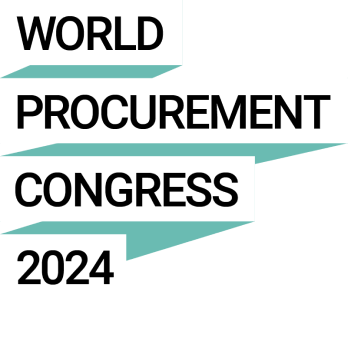Swiss biopharmaceutical company Ferring is a leader in reproductive and maternal health, with manufacturing facilities in Europe, the Americas, China and India.
Here, CPO Eric Espinasse describes some of the strategies he has employed to manage the market volatility, from building up inventory to advanced segmentation and closer supplier relationships.
PL: Could you share a little bit about your procurement team structure, its strengths and the challenges you face at Ferring?
EE: We have a traditional, matrix-oriented team, with global and local experts, supporting 100% of Ferring’s spend. In our team structure, collaboration between global and regional staff is extremely important as we cannot afford to duplicate work. This requires a considerable communication effort on a quarterly basis to fully understand which team will cover a specific business requirement.
The other core challenge we face is the time we have to spend on relationship management vs contract optimisation. As supply has become scarce, the negotiation of our contractual terms has become less relevant. We have refocused some of our efforts on making Ferring higher on the priority list of our strategic suppliers.
This, also, demonstrates the value of procurement beyond savings and has been appreciated over the past two years of Covid and will be valued in this new volatile, uncertain, complex and ambiguous (Vuca) world. This is a great time for procurement to demonstrate we can do much more than cost savings. On a personal note, I am looking for the business to say: “Thank you, procurement. I didn’t know you could help me with this, but it has made a difference to me.”
What are you doing differently to manage this inflationary environment?
We have reviewed our contracts and adjusted them to the appropriate indexes (inflation is not always relevant to all goods and services). We have also built up stock at lower negotiated prices. Finally, we have delegated the management of certain commodities, for example, energy, to experts and have extended that service to some of our most important suppliers to mitigate their energy price increases, as well. This proved to be a good way to work more closely with our key suppliers and has put the company in a better position to negotiate prices or to ensure continuity of supply.
How are you preparing for what is likely to be a sustained period of recession?
Ferring procurement is fully contributing to such plans. As ‘cash is king’, we have reviewed all of our options in terms of payment terms, early payment discounts, reverse factoring and inventory management. We have also started a cross-functional effort (involving manufacturing, quality, logistics and procurement together) to identify some cost-of-goods-reduction initiatives by challenging the components of our products (this will pay dividends in the long term as it is difficult to change specifications in the pharmaceutical industry).
How important are supplier relationships to you in achieving your goals, especially during times of crisis? Why are they so important?
In the pharmaceutical world, it is very difficult and effort-consuming to change the supplier base of raw materials, meaning that supplier relationships are paramount. We believe that the more dependent we are on a supplier, the closer we need to be to them.
By developing our strategy with increased transparency, setting some mutual objectives and governing our relationship much more closely, we believe we have helped to raise the importance of Ferring for key suppliers. As a result, several innovative projects have been agreed, resulting in more business for our suppliers and improved benefits to Ferring.
What new capabilities are you looking to develop in your team to help you navigate this period of volatility?
The people development agenda has remained very high in 2021-2022 and will evolve in 2023 towards business partnership. We believe we still have a lot to bring to the business, beyond what they expect of us, and we will ensure we educate our people, through some emotional intelligence courses, to talk the language of the business, to portray our support in a more comprehensive manner and bring our suppliers more appropriately before our internal stakeholders.
What innovative initiatives have you put in place to help mitigate the impact of economic headwinds?
Our risk approach isn’t based on the traditional level of spend with suppliers, but on a number of risks we have based on our bill of material for a given product or service. This leads to a different conclusion in terms of which suppliers we should have a supplier performance or supplier relationship management programme with, or have no focus at all.

















